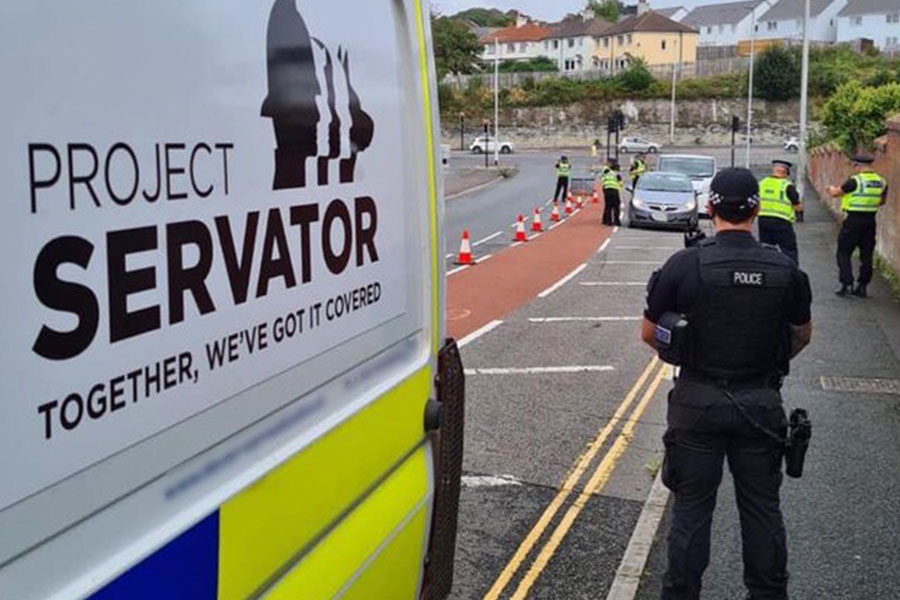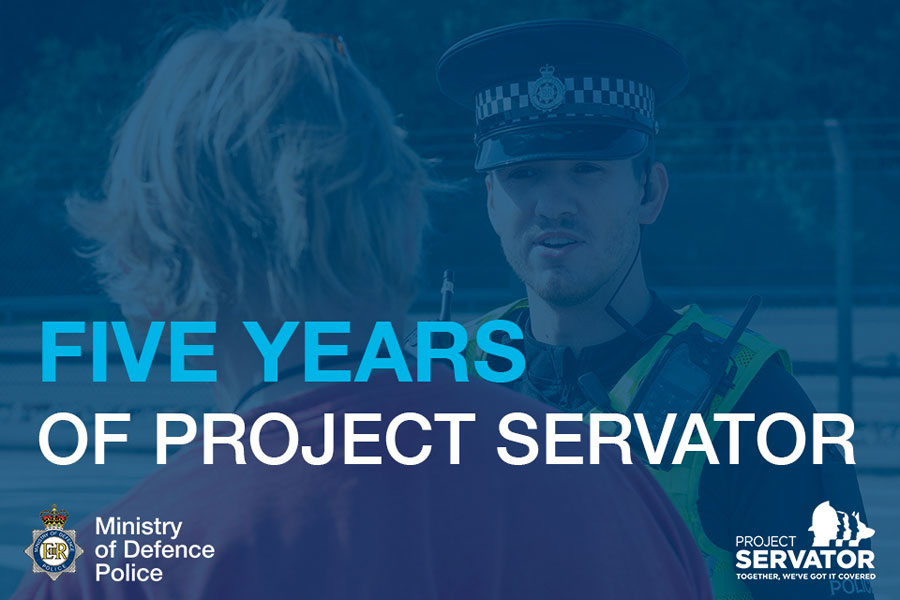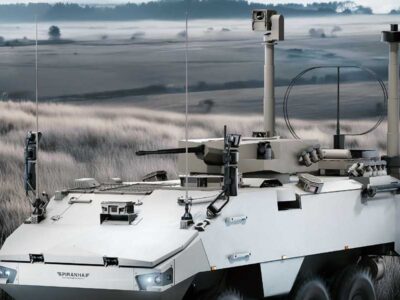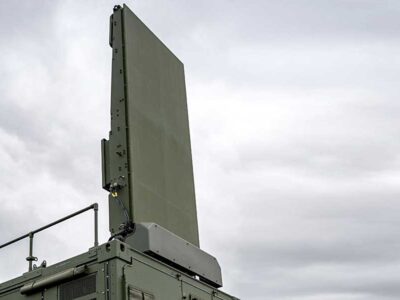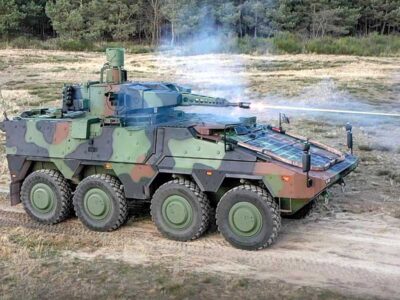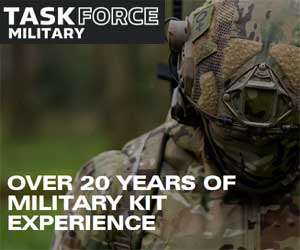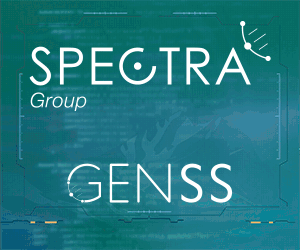The Ministry of Defence Police (MDP) celebrates its fifth anniversary of deploying the counter terrorism tactic Project SERVATOR.
~
News Release, Whitehall, 29 March 2022: This week marks five years since the MDP first adopted use of Project SERVATOR, a highly visible policing tactic that aims to disrupt a range of criminal activity, including terrorism, while providing a reassuring presence for the public.
MDP Project SERVATOR deployments first began at HM Naval Base Portsmouth and the Atomic Weapons Establishment (AWE) sites in Berkshire during March 2017, following an initial trial in 2016. The deployments can now also be seen at Defence HQ in Whitehall, Menwith Hill and the HM Naval Bases at Clyde and Devonport. A surge capability is available where required too, for example to provide support for local and national events.
Reflecting on the anniversary and growth of Project SERVATOR within the MDP, Superintendent Steffen Morgan-Fisher said: “We’re pleased to be celebrating five years of Project SERVATOR in the Ministry of Defence Police.
“Project SERVATOR deployments are integral to creating a network of vigilance and a difficult environment for criminals and terrorists to operate within, across the UK. In the MDP, we’re proud to serve and protect defence and critical national infrastructure, whilst working as part of the wider national counter terrorism and intelligence gathering context.
“During the coming year we will be expanding our use of Project SERVATOR to other sites that we protect and by the end of April all frontline MDP officers at Whitehall will have completed Project SERVATOR training. This will see an increase in the number of MDP Project SERVATOR deployments in the area, so if you see us come and say hi.
“Along with our Project SERVATOR deployments, since late 2019 we’ve delivered to more than 1490 people See Check and Notify (SCaN) training, on how to watch out for signs of potential criminal activity, working with Base security teams, partners, stakeholders, local businesses, and employers.
“I would like to thank everyone in our network of vigilant eyes and ears. The threat from terrorism to the UK is substantial, meaning an attack is likely and it is now as important as ever that everybody plays a vital role in helping us to protect defence, sites of national importance and surrounding communities, by reporting anything suspicious or that doesn’t seem right.”
How Project SERVATOR started and what it means: Project SERVATOR was first developed and introduced by the Centre for the Protection of National Infrastructure (CPNI) and the City of London Police in 2014 and is now used by a growing number of police forces in the UK, Gibraltar, and Australia.
SERVATOR is a Latin word which means ‘watcher’ or ‘observer’, and during policing operations Project SERVATOR officers, in uniform and plain clothes, ‘watch’ and ‘observe, using their specialist training to spot the tell-tale signs of criminal activity or intent.
MDP Project SERVATOR teams have identified criminality ranging from the carrying of knives, weapons, and drugs, to shoplifting, immigration and driving offences, to potential terrorist related activity, where intelligence is shared with specialist teams for assessment and possible sharing with other policing colleagues.
MDP Project SERVATOR – what you will and won’t see
- unpredictable deployments: you can expect to see officers pop up at any time, and anywhere
- officers operating in highly visible police uniform and in plain clothes: so, some you will see and some you may not
- community engagement: posters and handbills are used to support deployments and we’ll say hi if we see you, so feel free to ask us about what we’re doing and why
- a range of supporting resources (some you will see and some you won’t): these include police dogs, armed officers, vehicle engagement points, CCTV and Automatic Number Plate Recognition (ANPR)
- joined up working with policing and security partners, including the service police, the Ministry of Defence Guard Service, and other local police forces
How you can help: If you see or hear anything suspicious or if something just doesn’t seem right, trust your instincts, and report it to a police officer or member of security or staff immediately. We’ll do the rest.
Reports can also be made in confidence on the ACT (Action Counters Terrorism) website.
To report suspicious activity to the MDP, call 0300 1232 101. In an emergency, always call 999.
~


